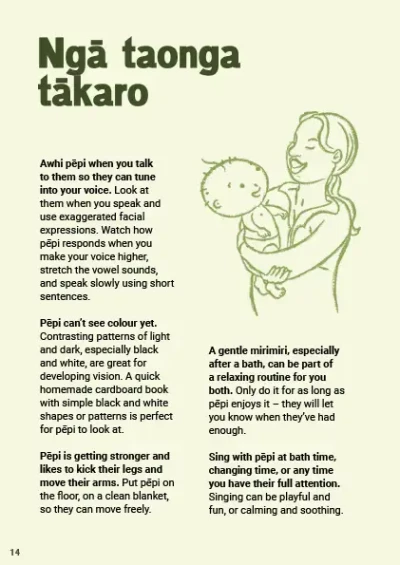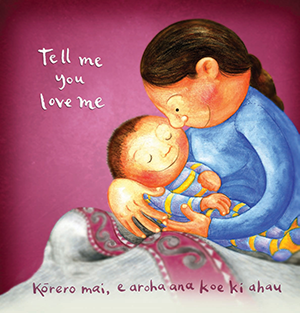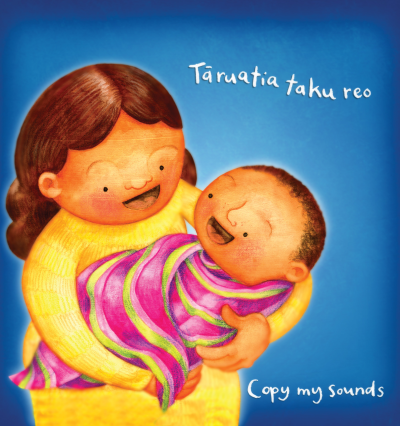
Helping baby to hear well
Babies hear voices before they are born and will recognise them after birth. Talking to babies in a certain way and protecting their hearing will ensure they'll hear well and eventually be able to talk.
In the Whakatipu booklet Te Kākano, it talks about a baby hearing many weeks before birth and how they’re already starting to recognise familiar voices, noises, stories and songs.
For example, if a whānau member talked regularly to baby in the womb, baby will turn towards that familiar voice after they’re born.
Ask whānau:
- What sorts of things would your baby have heard while they were in the womb?
- Did you talk directly or sing to your baby when you were pregnant?
- What songs did you sing?
- Do you still sing them now?
Speaking parentese
A young baby can be soothed when they hear songs, rhymes or stories that parents have told or sung to them before they were born. On page 10 of the Whakatipu booklet Te Pihinga 1, it says:
‘Awhi pēpi to tune into your voice. Look at them when you speak and use exaggerated facial expressions. Watch how pēpi responds when you make your voice higher, speak slower and use short sentences. This way of speaking is called “parentese”.’
It also involves exaggerating the vowel sounds. Babies are very responsive to parentese.
In the activity ideas for Birth to 2 months, there’s an activity encouraging face-to-face talking. It includes an explanation for parents on using parentese when talking to their new baby.
- Have you ever used the parentese style of speaking?
- How does it feel?
- Shall we practise it now and see how baby responds?
Sometimes people might feel silly talking to babies like this, but parentese is easier for baby’s brain to process.
It’s also helpful for a young baby if other noises like music or television are turned down low so baby is less distracted.
Caring for baby’s hearing
Baby’s ears and hearing will be checked at Well Child Tamariki Ora visits.
Ask whānau:
- Can you think why it’s so important to look after baby’s hearing?
Affirm that baby needs to hear properly so they can learn to talk.
- How do you think you can help protect baby’s hearing?
Add any of these points that may not have been mentioned:
- Keep baby safe from loud noises.
- Always hold baby when bottle-feeding to avoid milk running back into their nose and ears. This can happen if they’re left alone with their bottle propped up on a pillow.
- Take baby to see the doctor or nurse if they have sore ears or a bad cold.
- Keep their head and ears covered in cool weather.














